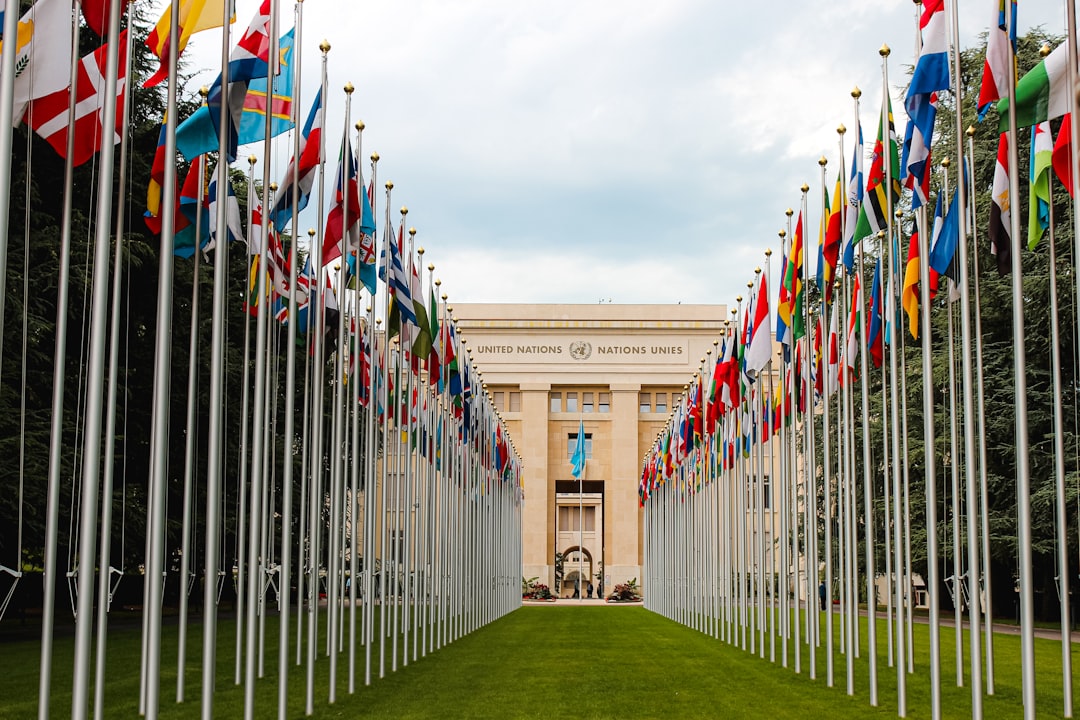China's Troubling New Internet Proposal
Beijing's submission to the UN Global Digital Compact frames its "cyber sovereignty" push in the language of development. This is concerning.

The United Nations recently launched its Global Digital Compact, an initiative about the future of the internet. China’s recent submission to the Compact repackages its decades-long push for more state control of the internet under the guise of digital development, closing digital divides, and countries taking their own approaches to the internet for equity-based reasons. Here’s what to know. Brought to you by Global Cyber Strategies, a Washington, DC-based research and advisory firm.
The One-Liner
China’s new future-of-the-internet proposal reframes its push for “cyber sovereignty,” or state control of the internet, in the language of development and closing digital divides — which risks receiving wider acceptance.
Unpacking China’s New Proposal
Konstantinos Komaitis and I wrote about China’s new submission to the United Nations’ Global Digital Compact for Tech Policy Press. As we write:
Over the past few decades, Beijing has shaped and structured its own digital vision and strategy under the premise of a multipolar world, where the United Nations provides the platform for state actors to determine how the internet should be governed. Chinese authorities have consistently advocated for this approach. At a few select points, though, Beijing has seized on larger windows of opportunity to advance its vision for a top-down, state-led internet model. In 2012, for instance, China introduced a proposal at the UN’s World Conference on International Telecommunications, along with Russia and others, to have the UN effectively take over internet functions run by the nonprofit ICANN and the world’s five, nonprofit regional internet registries. The proposal was struck down, but came closer than ever before to passage.
Beijing’s recent submission is no different, as Konstantinos and I write, as it focuses on the importance of sovereignty and multilateralism and blames foreign states, rather than taking some blame itself, for dividing the global internet. But an emphasis on “development” and words like “equity” and “mutual respect” reframe this push for “cyber sovereignty,” which the Chinese government has historically described as important to broader political sovereignty and national security. As we say:
It’s the kind of verbiage that will resonate with countries that are focused on digital development and feel imbalances of power in the international tech system. India, for example, refused to sign the G20’s “Digital Free Flow with Trust” proposal in 2020 because of digital divides and the government’s desire to chart its own path. Advancing “sovereignty” language within the rhetoric of development and inequity allows Beijing’s message to resonate with countries that are tired of the US perspective. Calling for “an equal emphasis on development and security” may appear to American observers as a blatantly authoritarian push for cyber sovereignty, but many other countries perceive it as a recognition of longstanding digital divides that require nationally distinct responses. Censorship and other top-down state actions can advance under the guise of bridging digital divides.
The US and Europe lack a clear, positive vision for what the internet looks like in the future; too much of the US and European view is framed in vague terms like “openness” and by essentially saying, “not China’s approach.” Hence our closing call in the Tech Policy Press article:
Policymakers in Washington and Brussels should work with counterparts to articulate a more precise vision for the future of the internet that goes beyond vague calls for “democracy” and a “rights-based” approach. Focusing on specific issues such as data privacy, cybersecurity, and limiting intrusive state surveillance would paint a clearer picture. The West must also realize that its “democracies vs. autocracies” rhetoric alienates many countries in the Global South, and that its fixation on China in all things tech-related undermines other, powerful messages, such as giving companies and civil society a voice in the internet — not just governments.
Subscribe for more public insights, and reach out on Global Cyber Strategies’ website for a range of custom-tailored research and advisory services.
—
© 2023 Global Cyber Strategies LLC.

